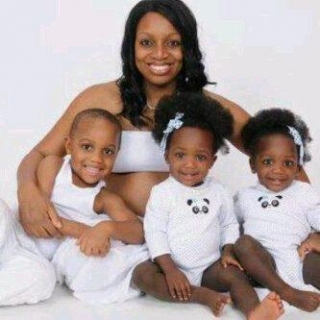

Maimuna Anyene was killed with all her kids in the ill-fated flight 992
After many years of being cajoled and dragged and mandated to go to church, one of the few things I learned was that once you die, you are dead. Your report card is sealed. Nothing can change it. I was taught that after death what comes next is judgment. It doesn’t matter if you cool off a little bit in Purgatory. You next court appearance after death is on Judgment Day.
So it baffles me when people pray for the dead. What would such a prayer accomplish? Would it change the grade the dead scored based on his or her life on earth? Would prayers alter the evidence accumulated against the dead? Would it change the judge’s verdict? How would our supplication for the dead to rest in peace be fulfilled if his work on earth had earned him a place without peace?
I believe the only use of mourning after death is for the living to reflect on their lives. It is okay to recall the life of the dead and the impact the dead made in the lives of the living. But as far as influencing what happens when the dead gets to the Great Beyond, I believe that is what is called ‘medicine after death.” If there are people who need prayers after a death, it is the living and not the dead.
I hereby pray for Nigerians who are still living following the deaths that occurred due to the Dana plane crash of June 3, 2012. I pray for those Nigerians who will board a Nigerian plane today and tomorrow. I pray that the technicians who will work on the plane will not choose a short cut in their maintenance work. I pray that the pilots will have the strength of character to refuse to fly a faulty aircraft. I pray that the government officials charged with supervising and inspecting airlines and making sure that they are maintained and are fit to fly do not collect bribes and just sign off on works they did not see.
Of course, prayers are not enough. Rather than prayer, people who really wish to help can take concrete steps to ensure that the technicians do their job; that the pilots fly only air-worthy planes; and that the government agency overseeing airlines diligently monitors what the airlines are doing. It is needless to say that a whistleblower is more valuable than a prayer warrior.
I know that before I finish this prayer, many more Nigerians would have died unnecessary deaths. Whatever day it is that you are reading this, ten times the number of deaths in the plane disaster occurred this day. Some kids died in Nigeria from convulsion due to fever their parents could not control because they had no money to buy children’s Panadol. The Nigerian roads, ever in bad shape, took their own share of Nigerian blood today. Those who had accidents, who would have lived had our hospitals been well equipped, died of their injuries. There are always those women who died daily during childbirth. Kids killed by water borne diseases due to a lack of clean water.
You may not know about these people because they are not under your radar. They do not run the banks. They do not speak for corporations. They do not lecture at your universities. They do not appear on Nigerian idol. They have never sat inside a plane that you have sat in. They are ordinary men and women, children and teens, in villages and small towns across Nigeria. Your life has not intersected with theirs. When you drive across their rural abode, you often ponder why people still live the way they live. You shake your head and move on to your fenced mansion.
You don’t have to pray for them when they die. You don’t even know how many of them die everyday. The president does not fly down to their villages to visit the hospital where they died. The governor of their state does not declare three days of mourning even though the story may get to him about the beautiful twins killed when a fire consumed their home. Their local government chairman does not shed tears for them. Of course, the Lagos newspapers will not put their pictures on the front page. If ever their story filters into your ears it joins “one of those things that happen to unfortunate people.”
But death they died. And if my religion taught me anything, judgment will await them too. The same way it will await the president when he dies. And the governor when he dies. And the general when he dies. And the police chief when he dies. And the civil servant when he dies. And the government contractor when he dies. And the other leaders who have failed to provide for the welfare and well-being of the people when they were in position of authority. Death is the common denominator that ultimately levels the playing field.
We live as if the prayers we would receive when we die could wash away our sins. It doesn’t. It shouldn’t. It couldn’t. It’s like saying that prayers can change your grade after you have turned in your examination paper. If it did, the whole purpose of the examination is defeated. If, however, you are convinced that prayer washes away the sins of the dead, then, we are not doing enough of it.
Just as prayers cannot shield us from punishment, so can it not do for us the work we are supposed to do for ourselves. The goal of prayers is not to cajole and drag and mandate God to come and interfere on our behalf. The limit of prayers begins where your responsibility starts.
How did that son of a Kenyan student put it? “Change will not come if we wait for some other person or some other time. We are the ones we've been waiting for. We are the change that we seek.”
We – taking action. Not prayers, muttered on our knees.
Please correct me if I’m right.
No comments:
Post a Comment